How Much Caffeine is in Black Tea?
If you are concerned about your caffeine intake, you may be doing more and more research regarding how much caffeine is in your favorite drinks. Caffeine consumption is prevalent in the United States, with some of the most popular beverages containing high amounts of caffeine. Many people love the effects of caffeine, such as feeling awake, increased reaction time, etc. But there can be some negative effects as well.
Whether you enjoy a few cups of coffee, energy drinks, or different types of tea, you are probably consuming caffeine in those drinks. The caffeine content in a beverage varies depending on the ingredients and how the drink is prepared. Black tea specifically has one of the highest amounts of caffeine of all teas.
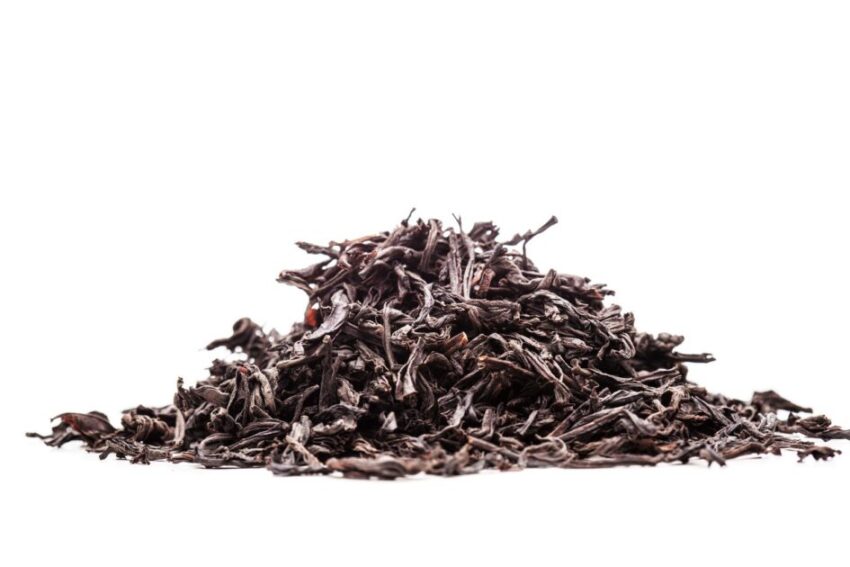
In this article, we will discuss general information about caffeine and how much caffeine is in black tea and other popular drinks.
What is Caffeine?
Caffeine is a natural stimulant that is found in many plants, such as coffee beans or the leaves of the Camellia Sinensis plant (also known as the tea plant.) When we drink caffeine, our brains feel activated and alert. This is because caffeine increases the activity happening in your brain and nervous system by increasing the circulation of cortisol and adrenaline in the body, which are chemicals that increase your heart rate and blood pressure. The drug Caffeine is easily absorbed by the body, so the effects will usually take effect between 5 and 30 minutes after consumption and can last for up to 12 hours.
Caffeine has been linked to health benefits like increased athletic abilities, better mental clarity, and increased metabolism which can lead to weight loss. The jolt of caffeine is a great way to start the day, which is why so many healthy adults drink coffee or tea in the morning!

Why Should You Care About Caffeine Content?
Although caffeine has been linked to a few great health benefits, high caffeine levels can have short- and long-term adverse effects. This is why it is important to pay attention to the milligrams of caffeine you are consuming daily. This helpful information can usually be found with the nutritional facts of the beverage.
The U.S. Department of Agriculture (USDA) and the European Food Safety Authority (EFSA) state that 400 mg of caffeine per day is a safe limit. To give you an example, the average cup of coffee contains 75-100 mg of caffeine, so it is a pretty high limit that even avid coffee and tea drinkers do not have an issue staying well below.
If you do consume too much caffeine, your body will have no problem letting you know. We’ve gathered a list of the symptoms and long-term effects of consuming a caffeine amount that is too high for your body below.
Short-term side effects of drinking too much caffeine at once:
- Dehydration
- Vertigo
- Headache
- Trembling Hands
- Irritability
- Anxiety
Long-term side effects of drinking too much caffeine:
- Insomnia
- Anxiety
- Depression
- High Blood Pressure
- Digestive Issues
- Heart Disease
How Much Caffeine is in Black Tea?
A common misconception is that all tea is created equal, but this is not the case. Different varieties of tea contain different caffeine levels, benefits, flavors, and preparation methods. Black tea comes from the Camellia Sinensis plant and is fully oxidized. When creating black tea, the oxidation process removes amino acids that prevent the full content of caffeine from coming through during fermentation.
Due to the oxidation of black tea, the average cup of black tea can contain between 40 and 70 mg of caffeine, which is the most caffeine content of all teas. This is why Earl Grey and English Breakfast Tea is made with black tea leaves. The preparation method, such as brewing time and water temperature of the tea, can cause the caffeine content to vary. Teas that are steeped for longer in hotter water will produce more caffeine.
In addition to decent caffeine content, black tea also has some other health advantages that tea drinkers can benefit from. Black tea has been known to lower blood pressure, reduce the risk of stroke, lower blood sugar levels, and help reduce the risk of cancer.
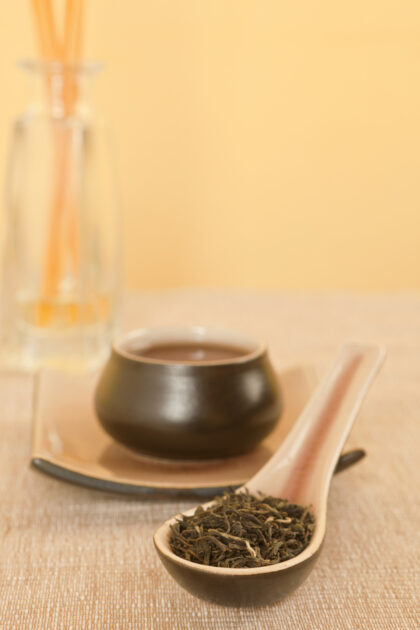
Black tea leaves on spoon
Caffeine Comparison: How Does Black Tea’s Caffeine Content Compare to Other Drinks?
Now that we know black tea usually has a caffeine content of 40-70 milligrams per cup, let’s find out how that compares to other caffeine beverages. If you are trying to get the health benefits of tea, you might have to sacrifice caffeine content. Keep reading along to see how black tea stacks up to other beverages when it comes to keeping you perky and alert!
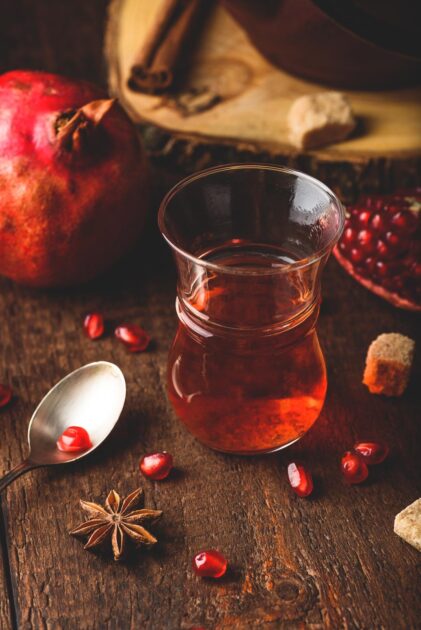
Black Tea Compared to Other Tea Types
Herbal Tea
Herbal teas are known for being light and fresh. The Herbal teas such as rooibos tea are the only kind of tea that does not come from the Camellia Sinensis plant. For example, Rooibos tea is made from a shrub called Aspalathus linearis, which grows in South Africa. Since herbal teas are made from different plants, they contain no caffeine. Decaffeinated teas are a great option for someone who wants the health advantages of tea without the effects of caffeine.
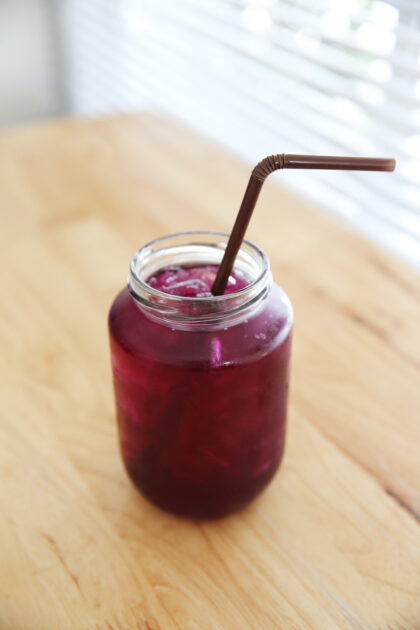
Green Tea
Although green tea is made from the same leaves of Camellia Sinensis as black and oolong tea, the buds do not go through the same withering and oxidation process, it is considered an unoxidized tea. Green tea is believed to help support brain function, and fat loss and reduce the risk of heart disease. A cup of green tea has between 15-50 mg of caffeine.
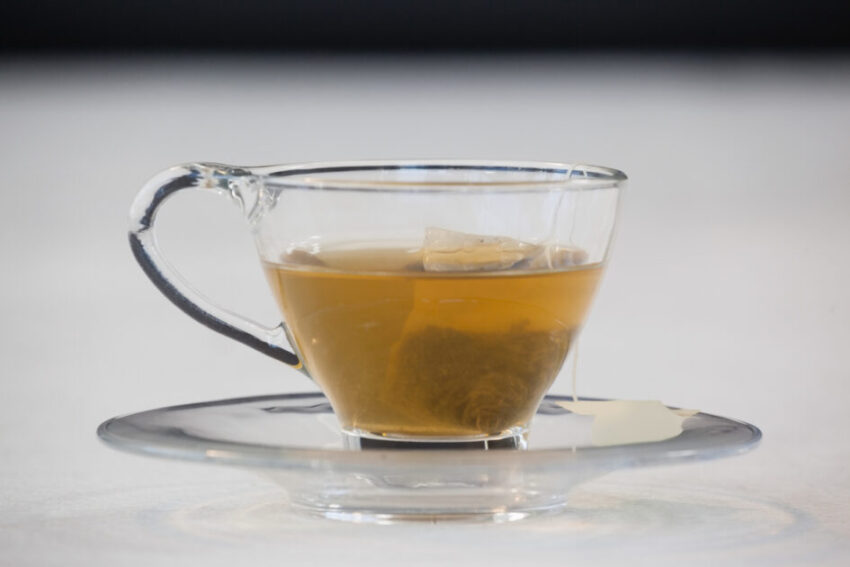
White Tea
White tea has less caffeine than all other teas that come from the Camellia Sinensis plant. In a cup of white tea, you will find just 10-15 mg of caffeine. This is a great tea to have in the evening or afternoon when you need a light dose of caffeine.
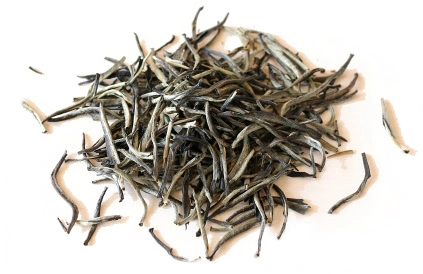
Oolong Tea
Oolong tea is a traditional Chinese tea that has a unique body and flavor. The tea is oxidized, but not as much as black tea. The leaves are considered “semi-oxidized.” This means that the caffeine content of oolong tea has less caffeine than that of black tea, but more than that green or white tea. The average caffeine content for an 8-oz cup of white tea is between 37 and 55 milligrams.
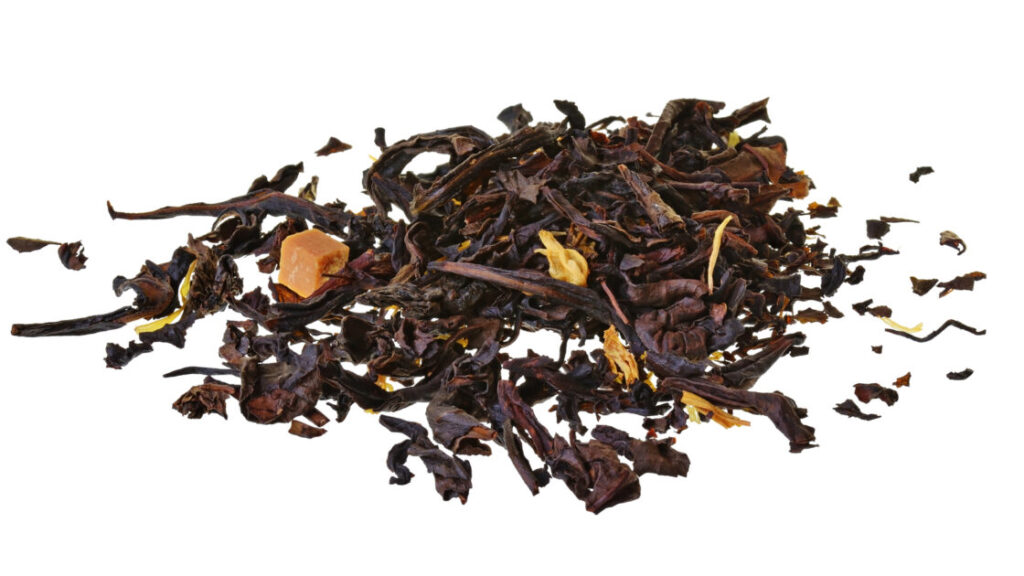
Black Tea Compared to Coffee
When it comes to caffeine, coffee generally has a higher caffeine content than tea cup for cup. One cup of black coffee has between 75-100 mg of caffeine, while we know that black tea can have 40-70 mg. This means that the amount of tea you would need to drink to reach the same level of caffeine as coffee could be double in some cases.
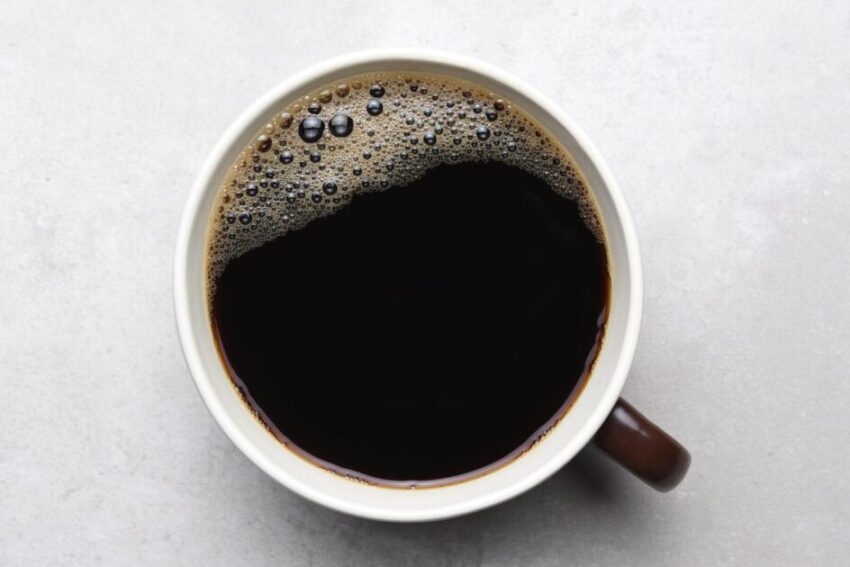
Black Tea Compared to Energy Drinks
Energy drinks, unlike tea and coffee, are not a natural source of caffeine. These drinks contain many chemicals and additives that can be unhealthy. But, they do have the most caffeine content out of the drinks on the list. In a 16-ounce can of energy drink, you can find anywhere from 120 to 190 mg of caffeine
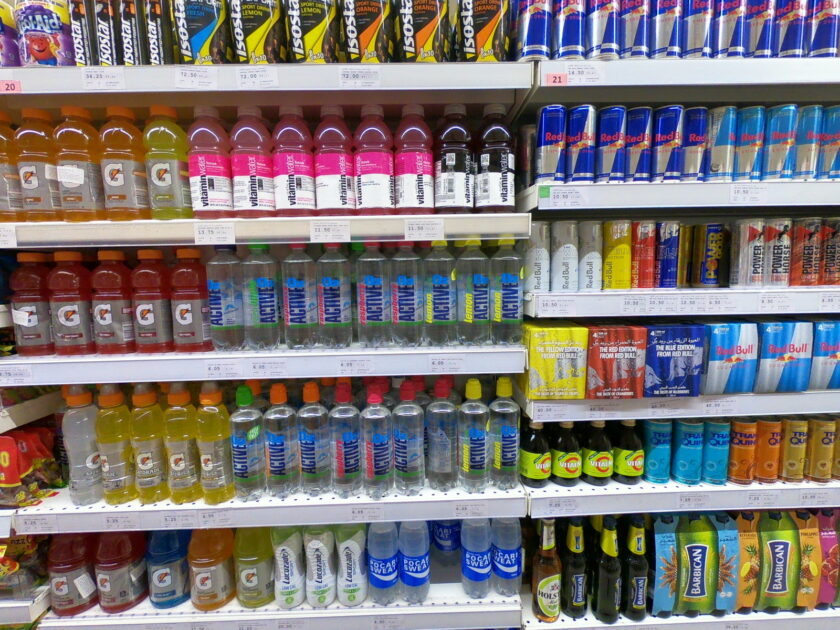
Summary
Caffeine consumption is very popular in America, whether it be through tea, coffee, or energy drinks. Caffeine is a natural stimulant that occurs in various plants used to create these beverages. It can improve your mood and mental clarity, and help with weight loss. But, too much caffeine can lead to dehydration, increased heart rate, and anxiety. For this reason, it is important to be aware of the caffeine content in your daily beverages.
The type of tea you drink will determine the amount of caffeine that you consume. Additionally, the amount of tea and the amount of time spent brewing the tea can all create different outcomes. For the best cup of tea, you should brew tea bags in hot water for 3 to 5 minutes.
Black tea has one of the highest caffeine content of all teas. Most teas, such as white, green, and oolong tea, all come from the Camellia Sinensis plant. Black tea is the most oxidized kind of tea, giving it the most caffeine. Thanks for reading, “How Much Caffeine is in Black Tea?” Stay tuned for more tea expert articles!
Sources:
https://www.healthline.com/nutrition/caffeine-in-tea-vs-coffee#caffeine-concerns
https://www.betterhealth.vic.gov.au/health/healthyliving/caffeine
https://teaswan.com/blogs/news/how-much-caffeine-in-black-tea
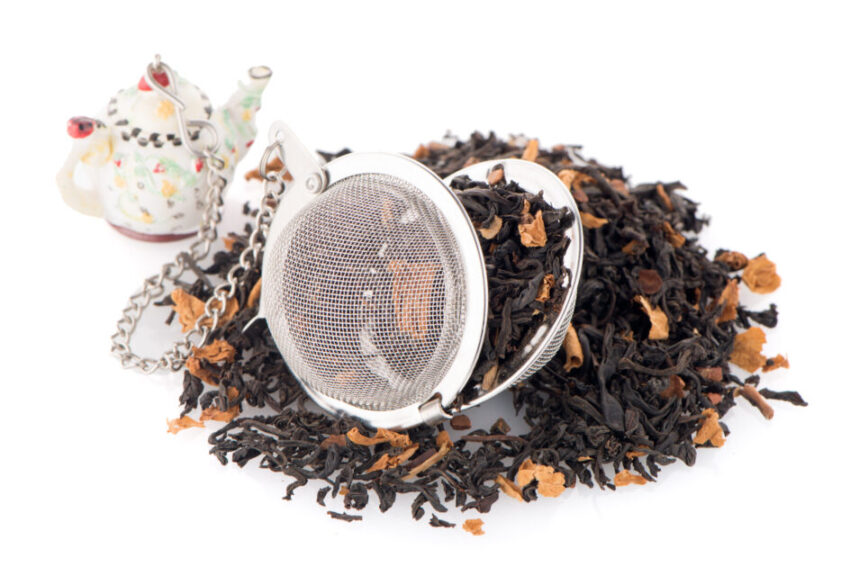
Pingback: TEA CAN STOP YOUR PERIOD? NOW HEAR THE TRUTH! -
Pingback: THE TRUTH ABOUT THE CAFFEINE CONTENT IN THAI TEA? -
Pingback: THE BEST TEAS TO HELP YOU STAY FOCUSED AND ENERGIZED -
Pingback: BITTER TEA: THE TRUTH ABOUT WHY YOUR BREW TASTES OFF -
Pingback: THE TRUTH ABOUT GINGER TEA FOR KIDNEY HEALTH -
Pingback: HOW TO MAKE COFFEE MILK TEA: A TEA LOVERS RECIPE -
Pingback: AMAZING: THE BEST TYPES OF HOT TEA AT STARBUCKS -
Pingback: What You Need to Know NOW Before Sipping Tea WITH Retainers!
Pingback: THE TRUTH ABOUT GREEN TEA HELPING A HANGOVER! -
Pingback: THE TRUTH ABOUT ICED TEA AND VEGANISM: IT’S SHOCKING! -
Pingback: HOW TO MAKE DELICIOUS TEA IN A COFFEE MAKER? -
Pingback: THE ALPHABETICAL LIST OF THE BEST TEAS TO TRY IMMEDIATELY -
Pingback: Loaded Tea Dupes Recipes You Need To Try now! -
Pingback: Learn How A Tea Bag Draws Out Infection Now! -